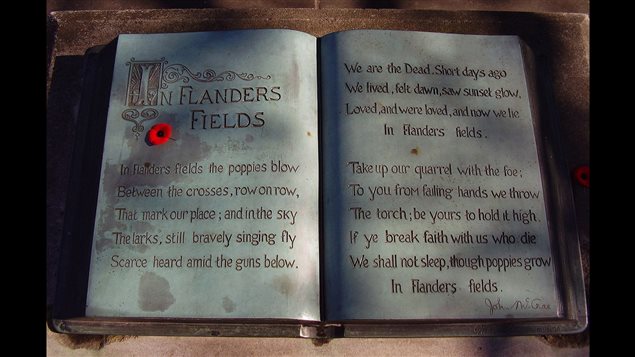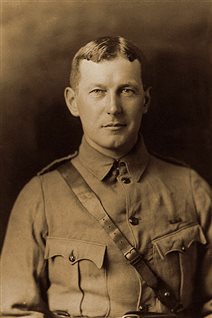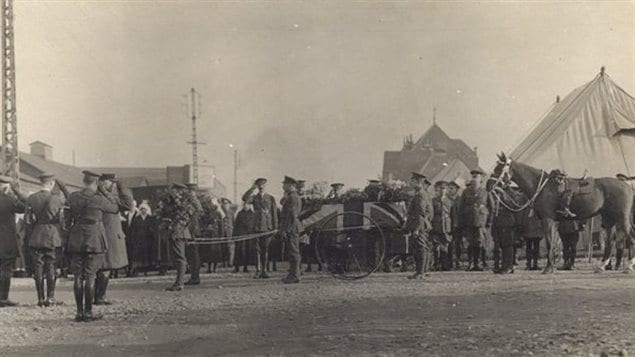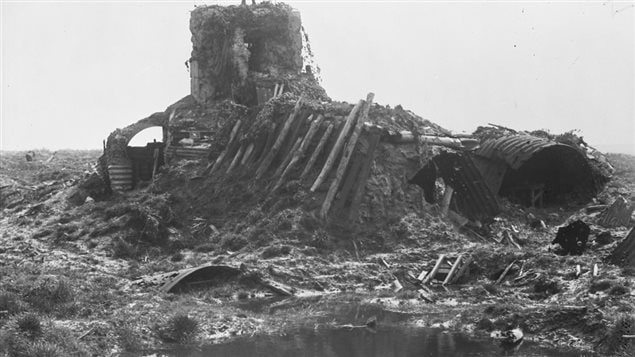Arguably the most famous poem of the First World War, In Flanders Fields” was penned by a distraught, but patriotic, Canadian doctor and was published for the first time on December 8, 1915.

As an artillery officer leading a battery with the Canadian Field Artillery in the Second Boer war, John McCrae was greatly disturbed by treatment available to the sick and injured. He left the military in 1904 and continued his medical studies in Canada and Britain.

When war broke out again in 1914, McCrae was back in uniform, and in spring 1915 found himself in the mud and and horrors of the Second Battle of Ypres, surrounded daily by the dead, the sick, and the horrifically maimed.
He would write to his mother, “The general impression in my mind is of a nightmare. We have been in the most bitter of fights. For seventeen days and seventeen nights none of us have had our clothes off, nor our boots even, except occasionally. In all that time while I was awake, gunfire and rifle fire never ceased for sixty seconds ….. And behind it all was the constant background of the sights of the dead, the wounded, the maimed, and a terrible anxiety lest the line should give way. (Prescott. In Flanders Fields: The Story of John McCrae, p. 98)
In the battle, his good friend and former medical student Lt Alexis Helmer was killed and quickly buried in a makeshift grave with a simple wooden cross. The poppies had already begun to appear, aided by the chalky soil that had been churned up by the massive, incessant bombardment.
After presiding over the funeral in May, he sat down and in short order had penned the poem. Initially he didn’t think that much of it, but on the insistence of others it was sent to the extremely popular Punch magazine in England.
At the same time melancholy and patriotic, it was an immediate success, and went on to be used in to be used in recruitment posters and was widely reprinted in the allied countries.

It inspired the widespread use of representations of red poppies in commonwealth countries as a symbol of remembrance on November 11th when national ceremonies are held to pay homage to the fallen of wars and conflicts.
Lt Col McCrae did not finish the war, having died of pneumonia on January 28, 1918.
The nurse who may have saved the poem
also December 8th, but 1941- Battle of Hong Kong
Dec 6th– worst tragedy in Canadian domestic history. Death of a city







For reasons beyond our control, and for an undetermined period of time, our comment section is now closed. However, our social networks remain open to your contributions.